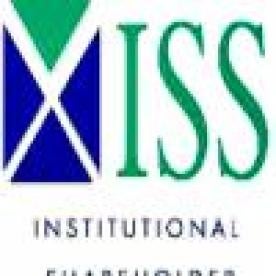On December 22, 2014, Institutional Shareholder Services (ISS), a leading proxy advisory firm, released 20 FAQs on its new Equity Plan Scorecard (EPSC) and nine FAQs on its updated Independent Chair Policy, each of which will be effective for meetings on or after February 1, 2015. As discussed previously in the Corporate and Financial Weekly Digest, the new EPSC approach evaluates equity incentive programs using a range of positive and negative factors within three pillars: (1) plan cost; (2) plan features; and (3) grant practices, rather than a series of “pass/fail” tests. Also discussed previously in the Corporate and Financial Weekly Digest, the updated Independent Chair Policy adds new governance, board leadership and performance factors to its analytical framework and adopts a more holistic approach in determining whether to vote “For” or “Against” independent chair shareholder proposals.
The FAQs with respect to the EPSC include guidance as to the following:
-
Each factor within the EPSC is assigned a maximum number of potential points, and a score of 53 or higher (out of a total of 100 possible points) will generally result in a positive recommendation for a proposal. The EPSC factors are not weighted equally. Furthermore, equity plans are subject to different weights and factors depending on the company’s size or status: (1) S&P 500; (2) Russell 3000 index (excluding S&P 500 companies); (3) Non-Russell 3000; or (4) Recent IPO or Bankruptcy Emergent company (or any company that does not disclose at least three years of grant data).
-
Notwithstanding this new EPSC approach, certain egregious features of equity plans will continue to result in a negative recommendation, regardless of other EPSC factors. For example, a plan (1) with a liberal change-of-control definition that could result in vesting other than upon a full “double trigger;” or (2) that permits repricing or cash buyouts of underwater options without shareholder approval will receive an “Against” recommendation from ISS.
The FAQs with respect to the Independent Chair Policy include guidance as to the following:
-
Under the new holistic approach, any single factor that may have previously triggered a “For” or “Against” recommendation may now be mitigated by other positive or negative factors. For example, a company’s performance and other governance factors could mitigate concerns about a less-than-robust lead director role. Conversely, a robust lead director may not mitigate concerns raised by other factors.
-
Board tenure may be a contributing factor in determining a vote recommendation, but will be considered in the aggregate with other factors, and all factors will be considered in the context of the overall leadership structure.
-
In evaluating a company’s performance, ISS will consider one-, three-, and five-year total shareholder return, or TSR, and will more heavily weight long-term performance over short-term performance.
Certain governance practices will be viewed negatively in any holistic review of independent chair proposals, including, but not limited to: (1) problematic compensation practices; (2) issues that put independence of directors at risk (e.g., multiple related-party transactions); (3) failures of risk oversight; (4) adoption of shareholder unfriendly bylaws without shareholder approval; (5) failure to adequately respond to majority-supported shareholder proposals or directors who do not receive majority support; and (6) flagrant actions by management with potential or realized negative impacts on shareholders.
This article was written with contributions from Andrew S. Herrington-Gilmore.





 i
i


